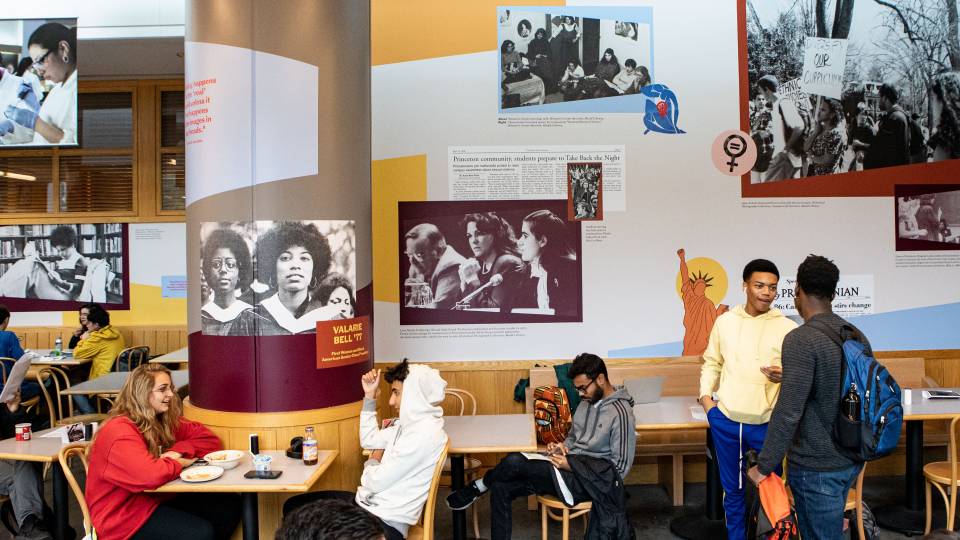by President Shirley M. Tilghman
This year marks the 40th anniversary of the arrival of undergraduate women who would receive Princeton degrees. In September of 1969 101 women matriculated with the Class of 1973, together with 70 transfer students who joined the Classes of 1970, 1971 and 1972. Forty years later the freshman class of 2013 is composed of equal numbers of men and women.
In the intervening years, women have succeeded and demonstrated leadership at the highest levels at Princeton. Their academic prowess is reflected in the significant number of women who have been valedictorians and salutatorians, winners of the Shapiro and Pyne Prizes, and recipients of Rhodes and Marshall Scholarships. Outside the classroom women have exercised leadership in all aspects of campus life -- from student government to community service to arts and literary organizations. Princeton's alumnae have likewise excelled in their professional careers and their volunteer roles for Princeton and their communities.
This fall there have been a number of discussions on campus, including within the pages of The Daily Princetonian, that raise the critical question of whether women undergraduates are realizing their academic potential and seeking opportunities for leadership at the same rate and in the same manner as their male colleagues. It has been noted that the officers of the Undergraduate Student Government and the 10 eating clubs, as well as recent Rhodes and Marshall Scholars have been predominantly male, while women are more often leaders in the residential colleges and community service organizations. To understand how undergraduate students perceive and seize the opportunities available to them to assert leadership both inside and outside the classroom, I have presented the following charge to a working group of faculty, staff and students, chaired by Nannerl Keohane, the Laurance S. Rockefeller Distinguished Visiting Professor of Public Affairs and the University Center for Human Values. I have asked the group to examine the current and historic data that are available on both academic leadership and extracurricular participation at Princeton, and whenever possible, to make comparisons with peer institutions. To fully appreciate the current climate for leadership on campus, they will consult broadly with the student body through workshops and focus groups. Questions that address academic performance and outcome will include:
- What are the academic credentials of men and women upon matriculation?
- As students progress from freshman to senior year, do the relative standings of men and women change?
- Are there gender differences among the four divisions in academic performance, and do these affect the way in which academic prizes are awarded? Are there gender differences in immediate postgraduate career choices?
- Are there gender differences among those who apply for prestigious fellowships, and does Princeton support their applications equally?
To explore the experience of students on the extracurricular side, the questions the working group will ask include:
- What is the gender profile of student "leaders" on campus today, and how has that changed over the past few decades?
- Are there extracurricular activities that have become the purview of one gender?
- Do men or women change their aspirations to be student leaders once they come to Princeton?
- How do students themselves perceive the opportunities to participate in and lead extracurricular groups?
- What factors determine whether a student decides to run for an elective office at Princeton?
The steering committee will continue its work through the fall of 2010. At the conclusion of their deliberations they will issue a report, which will describe their findings, and include recommendations for improving the opportunities for all students to excel at Princeton. In developing their recommendations I would ask the steering committee to aim for remedies that will have sustained and broad impact at Princeton.
